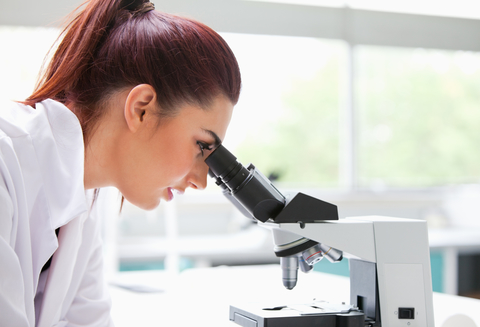Gene editing could improve blood transfusion compatibility

Synthetic biologists at the University of Bristol have succeeded in generating laboratory made red blood cells with rare blood group types that could one day be used to help people who cannot be matched with donor blood.
The provision of blood for people who require repeated blood transfusions, as well as for people with rare blood types, presents an enormous challenge to transfusion services worldwide. While most people can safely receive a blood transfusion from donated blood, people with blood disorders such as thalassemia or sickle cell disease require frequent transfusions. With repeated transfusion, people eventually develop an immune response to all but the most specifically matched donor blood due to incompatibility at the level of minor blood group antigens.
Using CRISPR-Cas9 mediated gene editing, the team of scientists based at the NIHR Blood and Transplant Research Unit (NIHR BTRU) in red cell products, BrisSynBio Centre and NHS Blood and Transplant in Bristol created individual cell lines in which specific blood group genes were altered to prevent the expression of blood group proteins that can cause immune reactions.
The University of Bristol reports, building on this gene editing approach, the team then went on to produce cells that combined the deletion of multiple blood groups in a single cell line that could be differentiated to generate functional novel red blood cells with extremely broad transfusion compatibility. Transfusions of red blood cells edited to improve compatibility could provide better treatments for those patients whose clinical needs are difficult to meet.
This study, published EMBO Molecular Medicine, provides the first proof of principle demonstration that gene editing can be used in combination with laboratory culture of red blood cells to generate rare or customised red blood cells for people with specific needs. Whilst the authors are keen to stress the many challenging technical obstacles that must be overcome before this approach could be translated to a clinical product, the work does provide an exciting window into the possible applications of red blood cells produced from gene edited cell lines.
Dr Ashley Toye, Director of the Bristol NIHR BTRU, said “Blood made using genetically edited cells could one day provide compatible transfusions for a group of patients for whom blood matching is difficult or impossible to achieve within the donor population. However, much more work will still be needed to produce blood cells suitable for patient use.”








